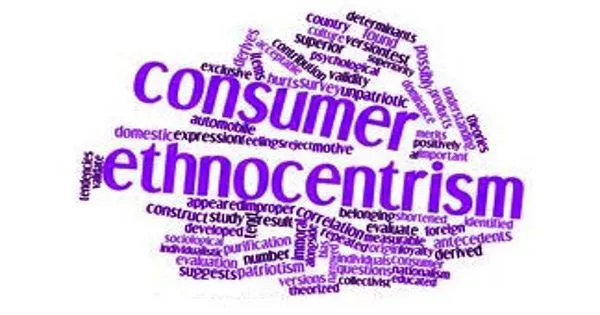Ethnocentrism is the term anthropologists use to describe the opinion that one’s own way of life is natural or correct. Consumer ethnocentrism is a psychological concept that describes how consumers purchase products based on their country of origin. It is a relatively new and unknown concept in marketing theory and practice. This concept, which has its roots in sociology, leads to a nationalistic evaluation of foreign products and services. It is the belief that a product deriving from your own ethnic or cultural group is inherently superior to similar products from other cultural or ethnic groups.
The tendency of customers’ preference to their local brands over the foreign ones is known as consumer ethnocentrism, and it is an important issue in international marketing.
It refers to ethnocentric views held by consumers in one country, the in-group, towards products from another country, the out-group. Ethnocentric consumers are reluctant to make use of services provided by foreign companies, because of a sense of loyalty towards their home country. Consumers may believe that it is not appropriate, and possibly even immoral, to buy products from other countries. In turn, these consumer ethnocentric tendencies can lead to negative attitudes towards foreign services.
Consumer ethnocentrism is derived from the more general psychological concept of ethnocentrism. The specific motivations underlying either form of behavior remain a virtually unexplored phenomenon in consumer behavior. This concept is postulated to be one component of a complex, multifaceted construct involving consumers, cognitive, affective, and normative orientations toward foreign-made products.
Consumer ethnocentrism is an important area of study in cross-cultural consumer research. Basically, ethnocentric individuals tend to view their group as superior to others. As such, they view other groups from the perspective of their own and reject those that are different while accepting those that are similar. Consumers’ preferences for domestic over imported products have been investigated in various isolated studies, but never in a single model incorporating several in-group and out-group consumer orientations at the same time. This, in turn, derives from earlier sociological theories of in-groups and out-groups. Ethnocentrism, it is consistently found, is normal for an in-group to an out-group.
Information Source:
















